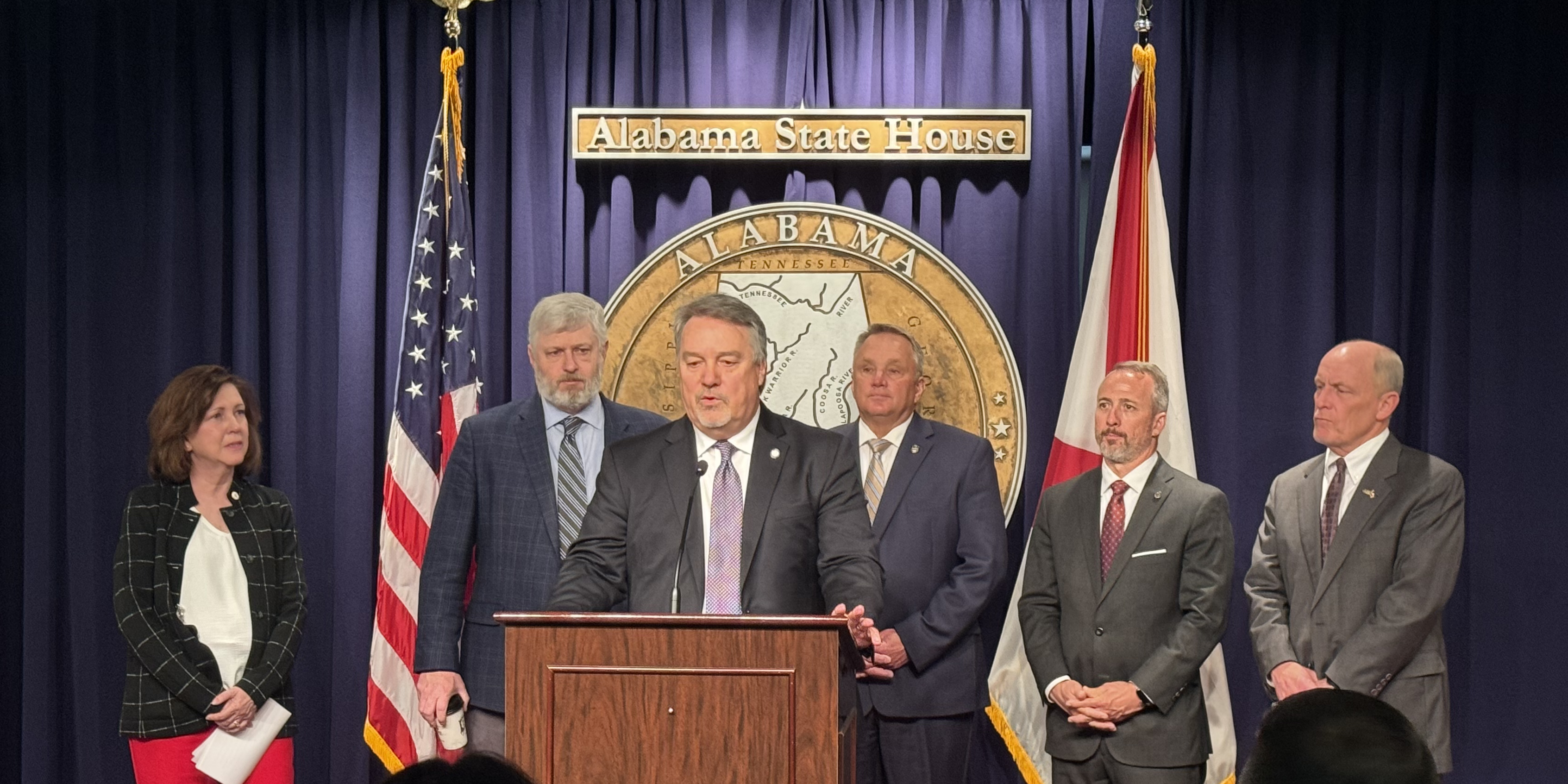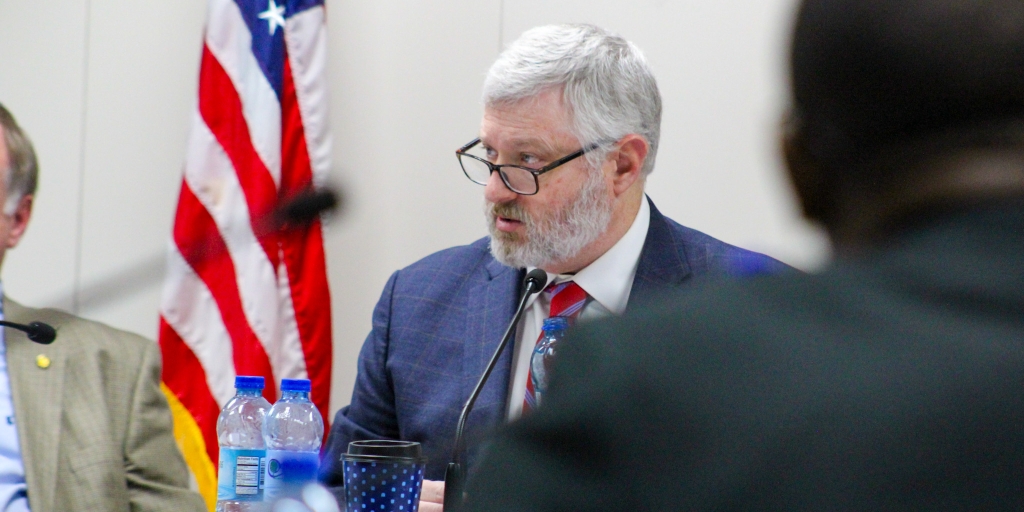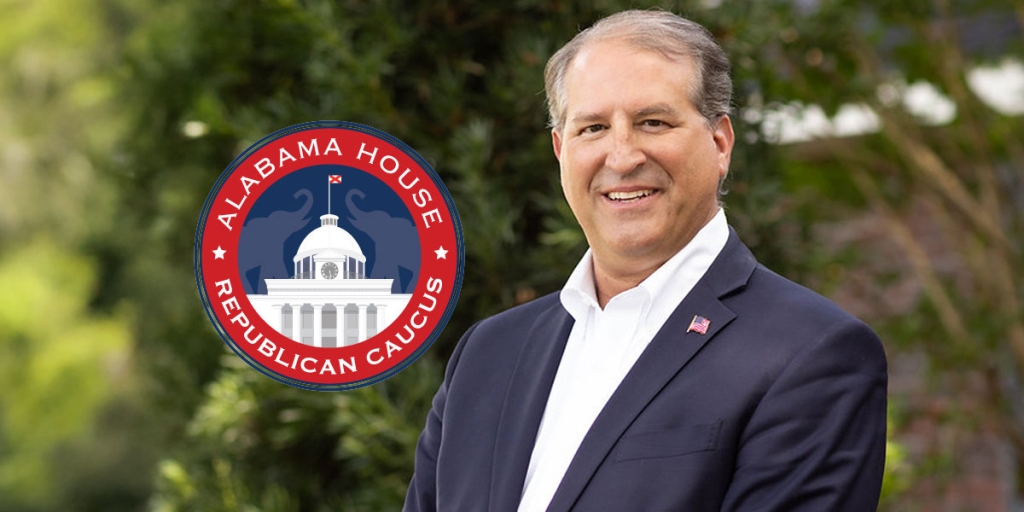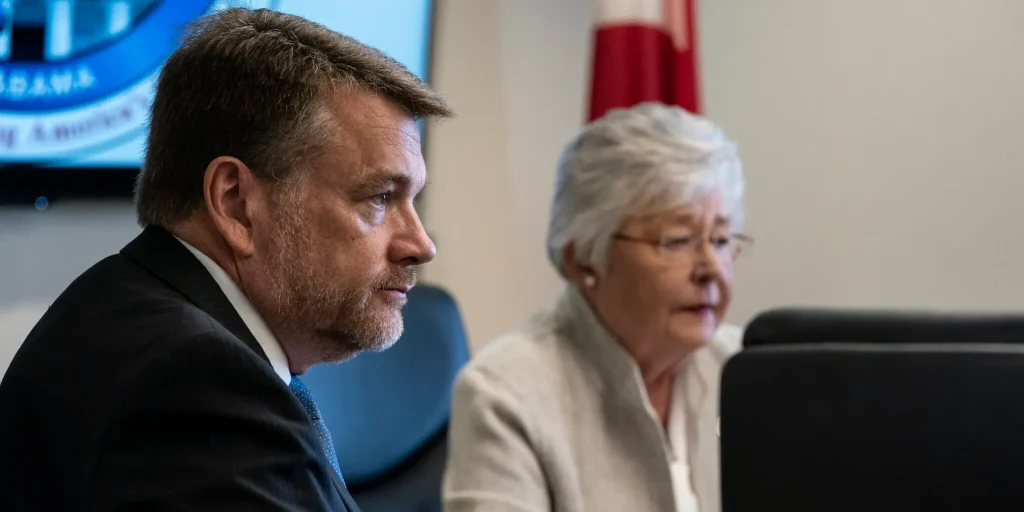Alabama lawmakers and officials gathered Wednesday to outline advancements in the state’s approach to mental health care. At a news conference, they addressed legislation intended to facilitate access to treatment, distribute funding more effectively, and modernize the way substance abuse is addressed alongside mental health conditions by families and first responders.
House Speaker Nathaniel Ledbetter, who has brought mental health health policy issues to the forefront of his chamber’s attention during his time in leadership, opened with a personal story about a mother whose son lost his life after a struggle with mental health in a tragic altercation with law enforcement.
Not long after he was pleaded with by that constituent to consider mental health reforms, he and Gov. Kay Ivey had already gotten to work.
“So, we were able to bring people from across the state, from education and probate judges, and law enforcement officers and from the school system, and talked about what we thought we could do, and we put a package together to where they have got six crisis care centers, 14 mobile units of every school system, and that state of Alabama now has paid mental health support,” Ledbetter (R-Rainsville) said.
RELATED: Alabama mental health support series launched with support from lawmakers
State Sen. Will Barfoot and State Reps. Rex Reynolds and Russell Bedsole also spoke encouragingly that – thanks to the support from colleagues – the legislative effort will save lives.
Companion legislation by Barfoot (R-Pike Road) and Bedsole (R-Alabaster) would build up local level treatment from state level policy. That proposal has advanced the committee process and is expected to receive full chamber votes imminently.
The Alabama Department of Mental Health, represented by Commissioner Kim Boswell, detailed the expansion and strengthening of the state’s crisis system of care, designed to divert individuals with mental health and substance use disorders from jails and emergency departments to appropriate treatment facilities.
Such a system addresses the need for civil commitments and integrates mental health and substance use treatment.
“This system exists to keep people out of jail, particularly our individuals with mental health and substance use disorder,” Boswell said Wednesday.
“We want to keep them out of jail. We want to keep them out of emergency departments where they have long waits and often don’t get any help. While the crisis system of care improves access to care for people who are willing to go to treatment, those who voluntarily go – through our conversations with the probate judges and the Association of County Commission – we know that there’s a drastic increase in the number of individuals who need a civil commitment to get to treatment.”
Grayson Everett is the state and political editor for Yellowhammer News. You can follow him on Twitter @Grayson270













